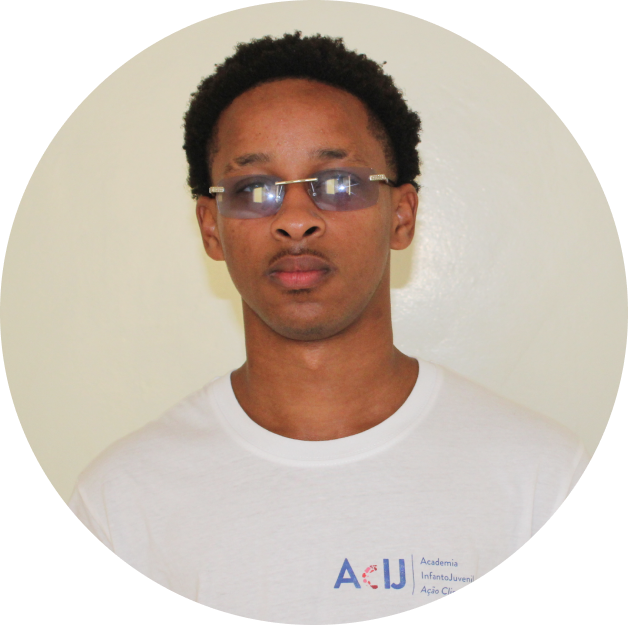The Children and Youth Academy for Climate Action (AcIJ) has emerged as an extremely relevant initiative in the contemporary context, where climate change represents one of the greatest threats to the sustainability of the planet. By focussing on the younger generations, the academy not only provides a platform for learning, but also cultivates an environmental awareness that is essential for building a more sustainable future. The choice of Ilha do Maio as the venue for this event is particularly significant, not only because of its rich biodiversity and unique environmental challenges, but also because of its potential to be a practical example of resilience and innovation in mitigating climate change.
Maio Island, one of the least developed islands in Cape Verde, faces environmental and socio-economic challenges that reflect the global problems caused by climate change. The scarcity of drinking water and vulnerability to storms are some of the problems faced by the island, which are intensifying as global temperatures rise and sea levels rise. Holding the academy in this location offers an opportunity to create practical solutions and adapt innovations to the local context, promoting greater awareness and community involvement.

The academy’s programme has been carefully structured into five themed sessions, each addressing fundamental aspects of climate action, and also includes the development of climate action projects with mentoring and a study visit to adaptation projects on the island of Maio.
The first edition of the Children and Youth Academy for Climate Action was organised by the National Directorate for the Environment in partnership with the National Directorate for Education with the support of the Climate Action Programme, funded by the Luxembourg Cooperation.
Session 1: Science and knowledge
The initial session focuses on the scientific basis of climate change, providing a fundamental understanding of the natural and anthropogenic phenomena that contribute to global warming. Discussions on the carbon cycle, the greenhouse effect and the impacts of rising temperatures provide an overview of the current challenges. This session is crucial for empowering young people with the knowledge needed to understand the complexity of climate issues and their global and local implications.
Session 2: Policies and instruments
The second session explores the role of public policies and legal instruments in mitigating and adapting to climate change. It addresses the importance of international agreements, such as the Paris Agreement, and national and local mitigation strategies. The discussion also includes the importance of inclusive policies that consider the needs of vulnerable communities and funding opportunities for environmental projects. This approach helps participants understand the importance of effective governance and the need for coordinated action at multiple levels.
Session 3: Initiatives and projects
This session presents practical examples of initiatives and projects that are being implemented to combat climate change. From renewable energy projects to reforestation programmes and sustainable agriculture, the session highlights how different approaches can be applied to reduce the carbon footprint and promote sustainability. This gives young people the opportunity to learn about real projects, inspiring them to develop and implement their own initiatives.
Session 4: Audiovisuals and behaviour change
Recognising the power of audiovisuals as a communication and mobilisation tool, this session focuses on the production of content that promotes environmental awareness and encourages changes in behaviour. Films, documentaries and social media campaigns are analysed for their effectiveness in conveying important messages about sustainability and conservation. This session is key to empowering young people to use the media as a means of advocacy and education.
Session 5: Leadership, communication and advocacy
The last session is dedicated to developing leadership and communication skills, essential for any change agent. Through workshops and training, participants learn to articulate their ideas, lead projects and advocate for effective climate policies. This session is a bridge to action, encouraging young people to take on leadership roles in their communities and become active voices in the fight against climate change.
Study visit to adaptation activities
The Children and Youth Academy also enjoyed the invaluable support of the Maio Biodiversity Foundation (FMB), an organisation dedicated to protecting and promoting biodiversity on the island. The FMB plays a crucial role in organising and facilitating the academy’s activities, providing expert knowledge and logistical support.
On Thursday, the participants had the opportunity to go on a field trip, exploring the island’s protected areas and learning about endemic species and local ecosystems. This practical experience allowed the young people to take a closer look at the challenges faced by local biodiversity and the importance of conservation.
In addition, the participants took part in turtle monitoring brigades, an activity coordinated by the FMB. During this activity, the young people learnt about the importance of preserving sea turtles and the measures taken to protect them. This practical experience not only educated the participants about the importance of conserving marine life, but also got them directly involved in environmental protection actions, strengthening their commitment to sustainability
In short, the Children and Youth Academy represents an essential platform for engaging and empowering young people in the fight against climate change. By tackling a variety of topics, from science to advocacy, the Academy not only educates but also inspires the next generation of climate leaders. The choice of Maio as the venue for this event highlights the importance of including vulnerable communities in the global dialogue on sustainability, promoting a fairer and more equitable future for everyone on the Island.
Author

Tiago Silva,
Student at Academia InfantoJuvenil para a Ação Climática and host from Ilha do Maio
Editorial orientation from Larissa Moreira
